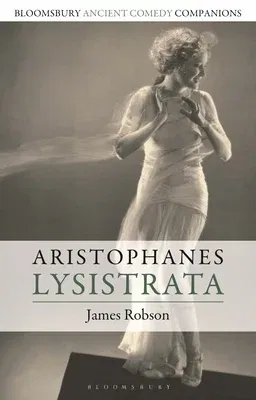James Robson
(Author)Aristophanes: LysistrataPaperback, 12 January 2023

Qty
1
Turbo
Ships in 2 - 3 days
Only 3 left
Free Delivery
Cash on Delivery
15 Days
Free Returns
Secure Checkout

Part of Series
Bloomsbury Ancient Comedy Companions
Print Length
200 pages
Language
English
Publisher
Bloomsbury Academic
Date Published
12 Jan 2023
ISBN-10
1350090301
ISBN-13
9781350090309
Description
Product Details
Author:
Book Format:
Paperback
Country of Origin:
US
Date Published:
12 January 2023
Dimensions:
21.59 x
13.79 x
2.54 cm
Genre:
Ancient (To 499 A.D.)
ISBN-10:
1350090301
ISBN-13:
9781350090309
Language:
English
Location:
New York
Pages:
200
Publisher:
Weight:
453.59 gm